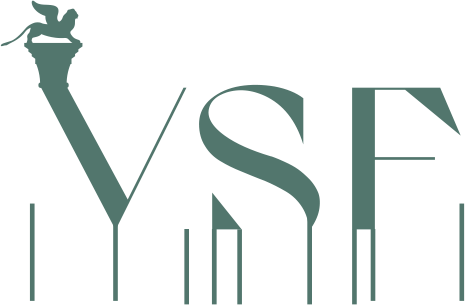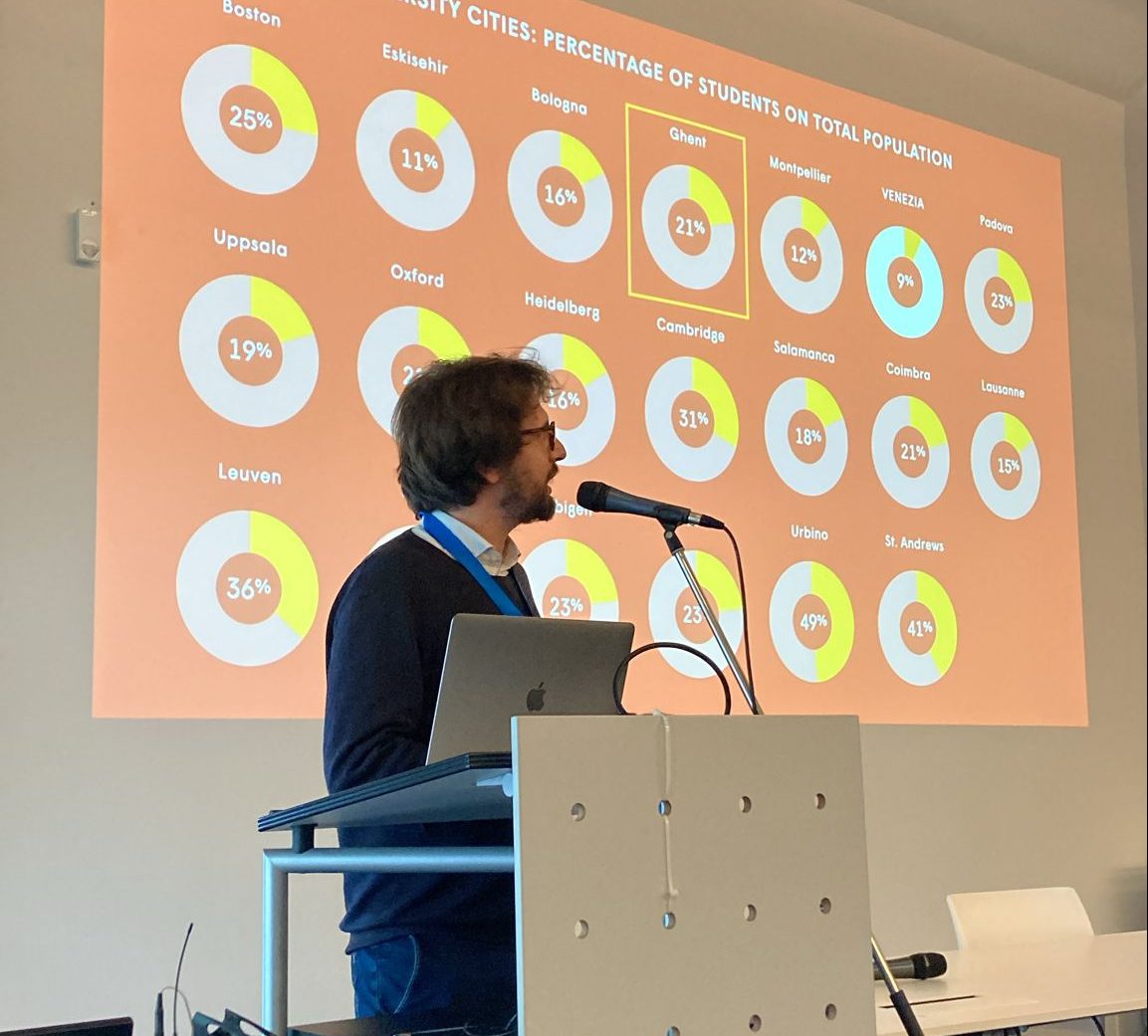VSF and the “Venice City Campus” project, which aims to develop the knowledge cluster in the Venice area, were presented at the EUniverCities Network Meeting in Ghent, Belgium, on May 7.
EUniverCities is a European network, launched in 2012, in which medium-sized cities and universities collaborate to develop knowledge cities in Europe. The network in fact aims to create a center for the exchange and sharing of knowledge, skills and cooperative experiences between cities and universities across the Old Continent.
On the second day of the meeting, which took place between May 6 and 8, the director-general of the Venice Sustainability Foundation (VSF) Alessandro Costa and Venice city campus project manager Jacopo Galli outlined the foundation’s activities with a focus on the Venice city campus project.
Costa told how the Foundation is composed of a broad public-private partnership (46 members, 13 founders and 33 co-founders, including the Veneto Region, the Municipality of Venice, institutions, universities, think tanks, research centers and companies of national and international importance) interested in making Venice an international reference laboratory for sustainability. An innovative reality, unique in the world, which aims to create an integrated model (environmental, economic, social) of sustainable development for the City of Venice and its metropolitan area.
Afterwards, Galli outlined the Venice city campus project, a program to expand teaching, research and innovation, attract human capital, but also urban regeneration and new residency. Supported by the City of Venice and with the involvement of the Foundation’s academic partners, it has the ambition to trigger a process of sustainable revitalization of the city, consolidating in 10 years an urban knowledge cluster in the Venice of land and water. First nucleus of this initiative, was the launch of the “Water Pole” (in collaboration with Iuav, Ca’ Foscari, CNR and the Navy), followed by the “Restoration Pole” and three new interdisciplinary degree courses, to enhance the spaces of the Arsenal for educational and research purposes.



